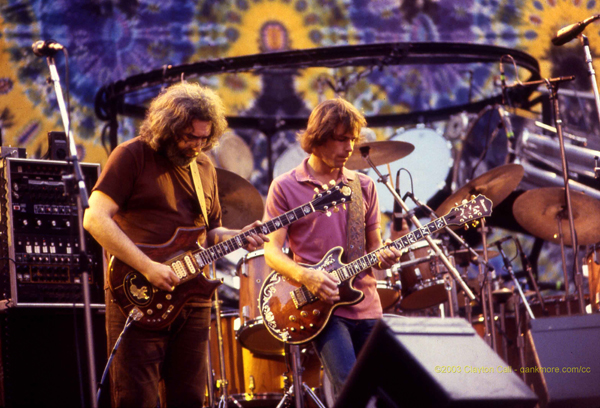
Videos by American Songwriter
Though Jackson Browne is often associated today with the social and political consciousness of his songs, “These Days,” one of his earliest and often-covered compositions, deals with images of love, loss, and regret.
“I wrote this when I was about sixteen, although not precisely in this form,” Browne says when introducing “These Days” on the 2005 live album, Solo Acoustic, Vol. 1. Browne actually first cut “These Days” under the title “I’ve Been Out Walking,” for a 1967 demo tape for Elektra’s Nina Music publishing arm, for whom he was a young staff writer in New York.
The song was then given to Nico, the Velvet Underground singer and Warhol muse, for her 1967 solo album, Chelsea Girl. Browne himself plays guitar on her version, prompted by Warhol to play electric instead of acoustic to “sound more modern,” as Browne explains on the live album. The understated fingerpicked guitar opens the song’s walk-down intro, hanging enchantingly on a C major 7th chord (played as an F capoed on the fifth fret) before Nico’s vocal comes in, backed by a string quartet.
At some point, Browne changed the song’s middle verse, though Nico’s version retains the original from “I’ve Been Out Walking”: “I stopped my ramblin’/ I don’t do too much gambling these days,” along with its final contemplation, “And I wonder if I’d see another highway.”
By the early ’70s, Browne was living back in California, but before he could take a stab at releasing his own version of “These Days,” the song would travel down south for Gregg Allman’s 1973 solo album, Laid Back.
Released the same month and year (October 1973) as Browne’s version of the song on his second album, For Everyman, Allman’s “These Days” seems to steal Browne’s thunder just as The Eagles had when they recorded “Take It Easy,” a song Browne co-wrote with Glenn Frey, on their 1972 eponymous album.
Browne actually based his own arrangement of “These Days” on Allman’s, crediting him on the original For Everyman album sleeve. The slow-paced steel guitar of Cowboy’s Scott Boyer, Chuck Leavell’s beautiful electric piano solo, and Allman’s self-harmonizing double vocal found new meaning in the song. Allman changes the phrasing of some lines, giving them a bluesier cadence, and the sense of loss in Allman’s voice is unmistakable, coming shortly after the deaths of his brother Duane Allman and bandmate Berry Oakley.
Browne’s version of “These Days,” recorded in Studio One at Sunset Sound, follows Allman’s acoustic guitar-tracked pace, with David Lindley supplying slide guitar, and bassist Doug Haywood the harmony vocal. Jim Keltner’s drums and David Paich’s piano give the song the classic ’70s folk-rock feeling of the early Asylum Records catalog (the label founded by Browne’s manager David Geffen). In Barney Hoskyn’s book Hotel California, Browne is portrayed as “the nexus of the scene” in Laurel Canyon, which included other artists and groups like The Eagles, Bonnie Raitt, and Crosby, Stills, & Nash.
For many contemporary listeners, “These Days” will forever be linked with Wes Anderson’s 2001 film, The Royal Tenenbaums. In Anderson’s Criterion Collection commentary to the film, he talks about how the image of Gwyneth Paltrow (as the character Margot Tenenbaum) stepping off the green line bus to the sound of Nico’s “These Days” was one of the earliest pieces for the film.
On Solo Acoustic, Browne says he had given permission for the filmmaker to use “These Days” in The Royal Tenenbaums but had forgotten about it, until he was sitting in the movie theater and the familiar electric guitar intro came on, though he didn’t initially even recognize his own playing.
While Browne’s attention mostly seems focused on the bigger picture these days — “it’s not really whether you talk about politics, but how well were you able to do it,” he told American Songwriter in a cover story in September 2008 — it’s the personal statement and succinct poetry of “These Days” that still resonate so well today.
Bruce Springsteen, a longtime fan who inducted Browne into the Hall of Fame in March 2004, described the first time he heard Browne perform many years earlier. “As I listened that night I knew that this guy was simply one of the best,” said Springsteen. “Each song was like a diamond and my first thought was, ‘Damn, he’s good.’ My second thought was, ‘I need less words.’”
“These Days”
Well I’ve been out walkin’
I don’t do that much talkin’ these days
These days
These days I seem to think a lot
About the things that I forgot to do for you
And all the times I had the chance to
And I had a lover
And it’s so hard to risk another these days
These days
Now if I seem to be afraid to live the life that I have made in song
Well, it’s just that I’ve been losin’ for so long
Well I’ll keep on movin’, movin’ on
Things are bound to be improvin’ these days
One of these days
These days I’ll sit on corner stones
And count the time in quarter tones to ten, my friend
Don’t confront me with my failures
I had not forgotten them
Written by Jackson Browne











Leave a Reply
Only members can comment. Become a member. Already a member? Log in.